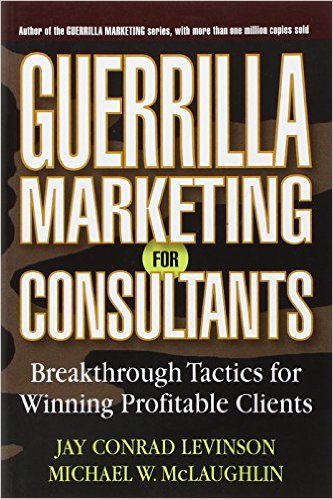Guerrilla Marketing for Consultants: Unconventional Strategies for Unconventional Success
Introduction
In today's competitive landscape, consultants must employ innovative and cost-effective marketing strategies to stand out. Guerrilla marketing, a non-traditional approach that relies on unconventional tactics to generate buzz and maximize impact, can be a powerful tool for consultants seeking to attract new clients and build brand awareness. This white paper explores the key principles of guerrilla marketing and provides practical strategies for consultants to implement.
Understanding Guerrilla Marketing
Guerrilla marketing is characterized by its resourcefulness, creativity, and ability to surprise. It involves using unconventional methods to capture attention, generate buzz, and leave a lasting impression. Key characteristics of guerrilla marketing include:
- Low Cost or No Cost: Guerrilla tactics often rely on minimal financial investment, leveraging creativity and ingenuity.
- High Impact: By targeting specific audiences and using unexpected methods, guerrilla marketing can generate significant buzz and media attention.
- Measurable Results: While quantifying the exact impact of guerrilla marketing can be challenging, tracking metrics like website traffic, social media engagement, and client inquiries can provide valuable insights.
Guerrilla Marketing Strategies for Consultants
- Leverage Social Media:
- Create engaging content, such as industry insights, case studies, and thought leadership pieces, and share it on platforms like LinkedIn, Twitter, and Instagram.
- Use relevant hashtags to increase visibility and reach a wider audience.
- Participate in online discussions and forums to establish yourself as an expert.
- Host Free Webinars and Workshops:
- Offer valuable insights and practical advice to attract potential clients.
- Promote your expertise and generate leads through live Q&A sessions and follow-up interactions.
- Create Viral Content:
- Develop compelling content, such as infographics, videos, or blog posts, that can be easily shared on social media.
- Encourage sharing by offering incentives or running contests.
- Partner with Complementary Businesses:
- Collaborate with businesses that serve a similar target audience but offer complementary services.
- Cross-promote each other's offerings and refer clients to one another.
- Utilize Public Relations:
- Pitch story ideas to journalists and bloggers to secure media coverage.
- Offer expert commentary on industry trends and current events.
- Engage in Community Outreach:
- Volunteer at local events and organizations to build relationships and network with potential clients.
- Sponsor community events or donate to charitable causes to enhance your brand image.
- Create Experiential Marketing Campaigns:
- Organize pop-up events or workshops to engage with potential clients in a memorable way.
- Offer free consultations or limited-time promotions to generate interest.
Conclusion
By embracing guerrilla marketing, consultants can effectively differentiate themselves from competitors, attract new clients, and build a strong brand reputation. By leveraging creativity, resourcefulness, and a deep understanding of their target audience, consultants can implement guerrilla tactics that yield significant results.
References
- Kotler, P., & Keller, K. L. (2016). Marketing Management. Pearson.
- Ries, A., & Trout, J. (1986). Positioning: The Battle for Your Mind. McGraw-Hill.
- Godin, S. (2009). All Marketers Are Liars: The Power of Telling Stories to Capture the World's Attention. Penguin Group.
By combining traditional marketing techniques with innovative guerrilla tactics, consultants can create a powerful marketing strategy that drives growth and success.



